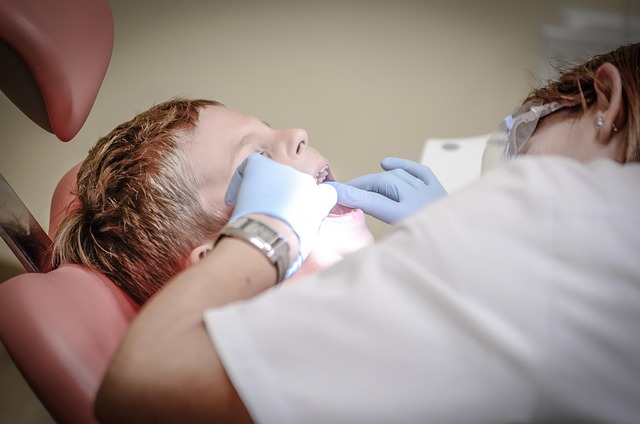Dental Implants Through HSE Dental Scheme: Complete Guide
The HSE dental scheme in Ireland provides limited coverage for dental implants under specific circumstances. Understanding the eligibility criteria, referral pathways, and what costs remain uncovered is essential for patients considering this treatment option. While the public system offers some support, most patients will need to explore alternative funding methods or private treatment to access comprehensive implant care.

Eligibility for HSE-Funded Dental Work
The HSE dental scheme operates under strict eligibility criteria that determine who can access publicly funded dental implant treatment. Medical card holders and those with GP visit cards form the primary eligible groups, though coverage remains limited to essential dental services. The scheme typically covers dental implants only in cases of significant medical necessity, such as following cancer treatment, trauma, or congenital conditions that severely impact oral function.
Patients must demonstrate that conventional dentures or other prosthetic options are unsuitable or have failed. The HSE requires comprehensive documentation showing that implants are medically necessary rather than cosmetic. Age restrictions may apply, with priority often given to younger patients who have lost teeth due to accident or illness rather than natural decay.
Referral Pathway Through Public Clinics
Accessing HSE-funded dental implants requires following a specific referral pathway that begins with your local HSE dental clinic. Patients cannot directly request implant treatment but must first undergo assessment at a community dental service. The referring dentist evaluates your case and determines whether you meet the criteria for specialist referral.
Once deemed eligible, patients receive referral to the Dublin Dental University Hospital or other designated specialist centers. Waiting times can extend from 18 months to several years, depending on case complexity and available resources. The referral process includes multiple appointments for assessment, treatment planning, and approval before any implant procedure begins.
Required Clinical Reports
The HSE requires extensive clinical documentation to justify implant treatment funding. Patients must provide detailed medical history reports, including any medications that might affect healing or implant success. Radiographic evidence, typically including CT scans or cone beam imaging, demonstrates bone quality and quantity at the implant site.
Clinical reports must document failed attempts with conventional prosthetics or explain why such alternatives are unsuitable. Specialist reports from oral surgeons, prosthodontists, or other relevant medical professionals support the treatment necessity. The documentation process can take several months to complete, adding to overall treatment timelines.
Typical Costs Not Covered
While the HSE may fund basic implant placement in qualifying cases, numerous associated costs remain the patient’s responsibility. Bone grafting procedures, often necessary before implant placement, typically cost between €500-€2,000 per site and are rarely covered. Sinus lift procedures can add €1,500-€3,000 to treatment costs.
The crown or prosthetic component attached to the implant usually requires private funding, ranging from €800-€1,500 per tooth. Maintenance visits, potential complications, and replacement components over the implant’s lifetime represent ongoing out-of-pocket expenses. Sedation options and premium materials also incur additional charges.
| Treatment Component | Typical Cost Range | HSE Coverage |
|---|---|---|
| Single Implant Placement | €1,500-€3,000 | Limited cases only |
| Implant Crown | €800-€1,500 | Usually not covered |
| Bone Grafting | €500-€2,000 | Rarely covered |
| Full Mouth Rehabilitation | €15,000-€30,000 | Exceptional cases |
| Annual Maintenance | €100-€300 | Not covered |
Prices, rates, or cost estimates mentioned in this article are based on the latest available information but may change over time. Independent research is advised before making financial decisions.
Alternatives to State-Funded Implant Treatment
Patients who don’t qualify for HSE funding or face lengthy waiting periods have several alternative options. Private dental insurance may provide partial coverage for implant treatment, though most policies exclude or severely limit implant benefits. Some insurers offer specific implant coverage as an additional premium option.
Dental schools and training institutions sometimes offer reduced-cost implant treatment performed by supervised students. Payment plans through private clinics allow patients to spread treatment costs over extended periods, making implants more financially accessible. Medical loans specifically designed for dental treatment provide another funding avenue.
Overseas treatment in countries like Hungary, Poland, or Turkey offers significantly lower costs, though patients must consider travel expenses and follow-up care logistics. Some patients opt for removable implant-supported dentures as a compromise between traditional dentures and fixed implants, often at reduced cost compared to individual implant crowns.
The HSE dental scheme provides valuable support for essential dental care, but implant coverage remains highly restricted. Patients requiring implant treatment should explore all available options, including private insurance, payment plans, and alternative treatment approaches to achieve optimal oral health outcomes within their financial means.




